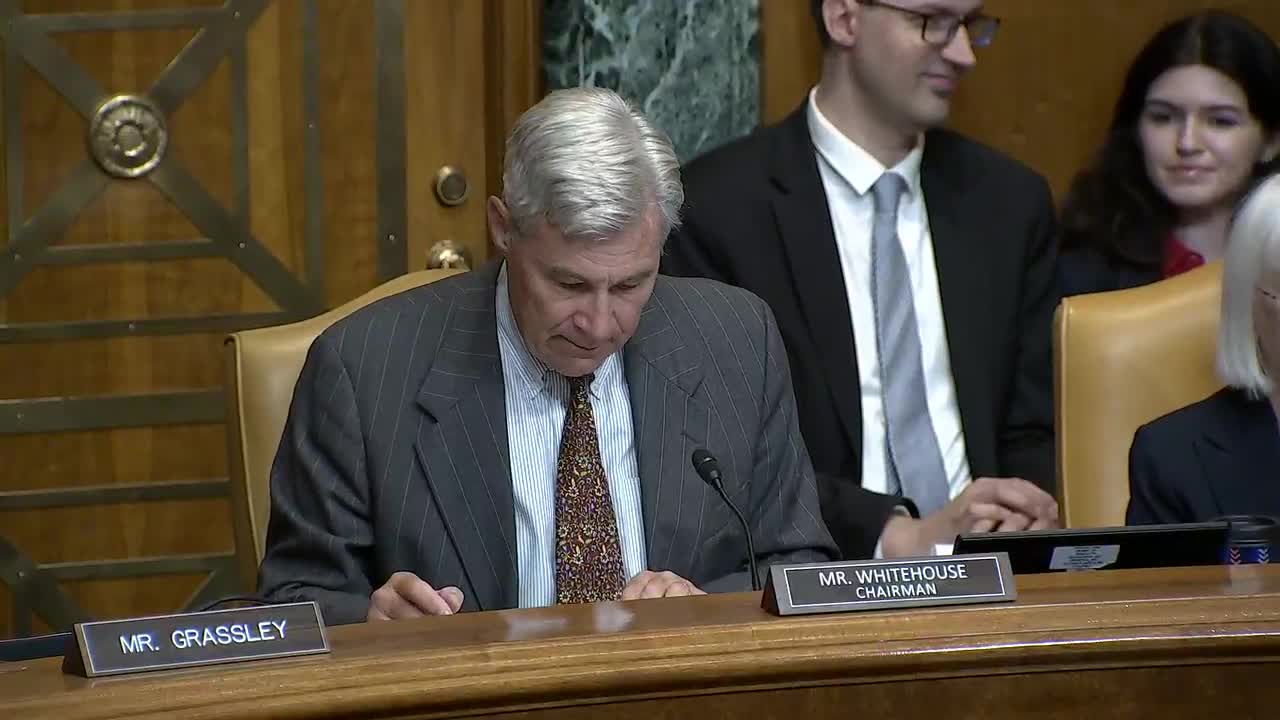Congress confronts urgent Social Security funding crisis
September 11, 2024 | Budget: Senate Committee, Standing Committees - House & Senate, Congressional Hearings Compilation
This article was created by AI summarizing key points discussed. AI makes mistakes, so for full details and context, please refer to the video of the full meeting. Please report any errors so we can fix them. Report an error »

In a recent government meeting, discussions centered on the urgent challenges facing Social Security, particularly its looming solvency crisis and the need for immediate budgetary improvements. Social Security Commissioner Martin O'Malley highlighted significant strides made in enhancing customer service, including a nearly 30% reduction in wait times for disability hearings and over 40% for phone calls. He emphasized the necessity of fully funding the Social Security Administration as part of the Biden administration's budget request for fiscal year 2025.
The meeting also featured testimony from advocates like Roger Boudreaux, who underscored the critical role of Social Security in ensuring retirement security for Americans. Boudreaux warned that without new revenue, the program is projected to cover only 83% of benefits by 2035, urging Congress to explore viable solutions to close the revenue gap.
A contentious point arose regarding proposed cuts to Social Security benefits by a significant faction of House Republicans, which contradicts bipartisan commitments made during the last State of the Union address. The current Republican budget proposal suggests drastic cuts totaling $1.5 trillion over the next decade, raising concerns about the impact on low-income retirees.
In response, some lawmakers proposed raising revenue through measures such as the Medicare and Social Security Fair Share Act, which aims to ensure higher earners contribute fairly to the system. This proposal seeks to eliminate the cap on Social Security contributions for incomes above $400,000 and extend contributions to non-wage income, thereby enhancing the program's solvency without cutting benefits.
Senator Chuck Grassley acknowledged the need for bipartisan cooperation to address Social Security's funding issues, while also cautioning against political tactics that could hinder honest debate. He called for a serious discussion on the various options available to prevent automatic cuts to retirement benefits, emphasizing that a collaborative approach is essential for the program's future.
As the meeting concluded, the urgency for legislative action was clear, with lawmakers from both parties recognizing the importance of preserving Social Security for future generations. The discussions highlighted a critical moment for the program, as stakeholders seek to balance fiscal responsibility with the promise of security for millions of Americans.
The meeting also featured testimony from advocates like Roger Boudreaux, who underscored the critical role of Social Security in ensuring retirement security for Americans. Boudreaux warned that without new revenue, the program is projected to cover only 83% of benefits by 2035, urging Congress to explore viable solutions to close the revenue gap.
A contentious point arose regarding proposed cuts to Social Security benefits by a significant faction of House Republicans, which contradicts bipartisan commitments made during the last State of the Union address. The current Republican budget proposal suggests drastic cuts totaling $1.5 trillion over the next decade, raising concerns about the impact on low-income retirees.
In response, some lawmakers proposed raising revenue through measures such as the Medicare and Social Security Fair Share Act, which aims to ensure higher earners contribute fairly to the system. This proposal seeks to eliminate the cap on Social Security contributions for incomes above $400,000 and extend contributions to non-wage income, thereby enhancing the program's solvency without cutting benefits.
Senator Chuck Grassley acknowledged the need for bipartisan cooperation to address Social Security's funding issues, while also cautioning against political tactics that could hinder honest debate. He called for a serious discussion on the various options available to prevent automatic cuts to retirement benefits, emphasizing that a collaborative approach is essential for the program's future.
As the meeting concluded, the urgency for legislative action was clear, with lawmakers from both parties recognizing the importance of preserving Social Security for future generations. The discussions highlighted a critical moment for the program, as stakeholders seek to balance fiscal responsibility with the promise of security for millions of Americans.
View full meeting
This article is based on a recent meeting—watch the full video and explore the complete transcript for deeper insights into the discussion.
View full meeting